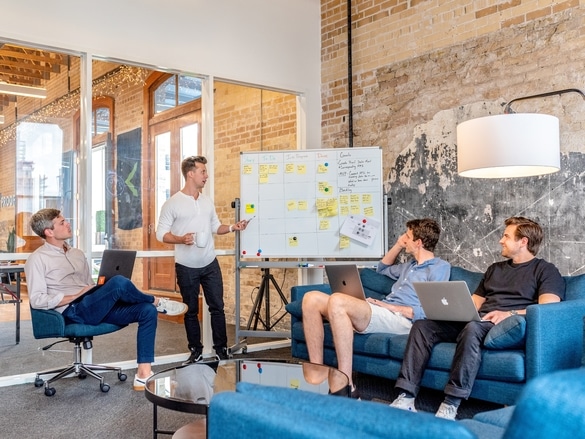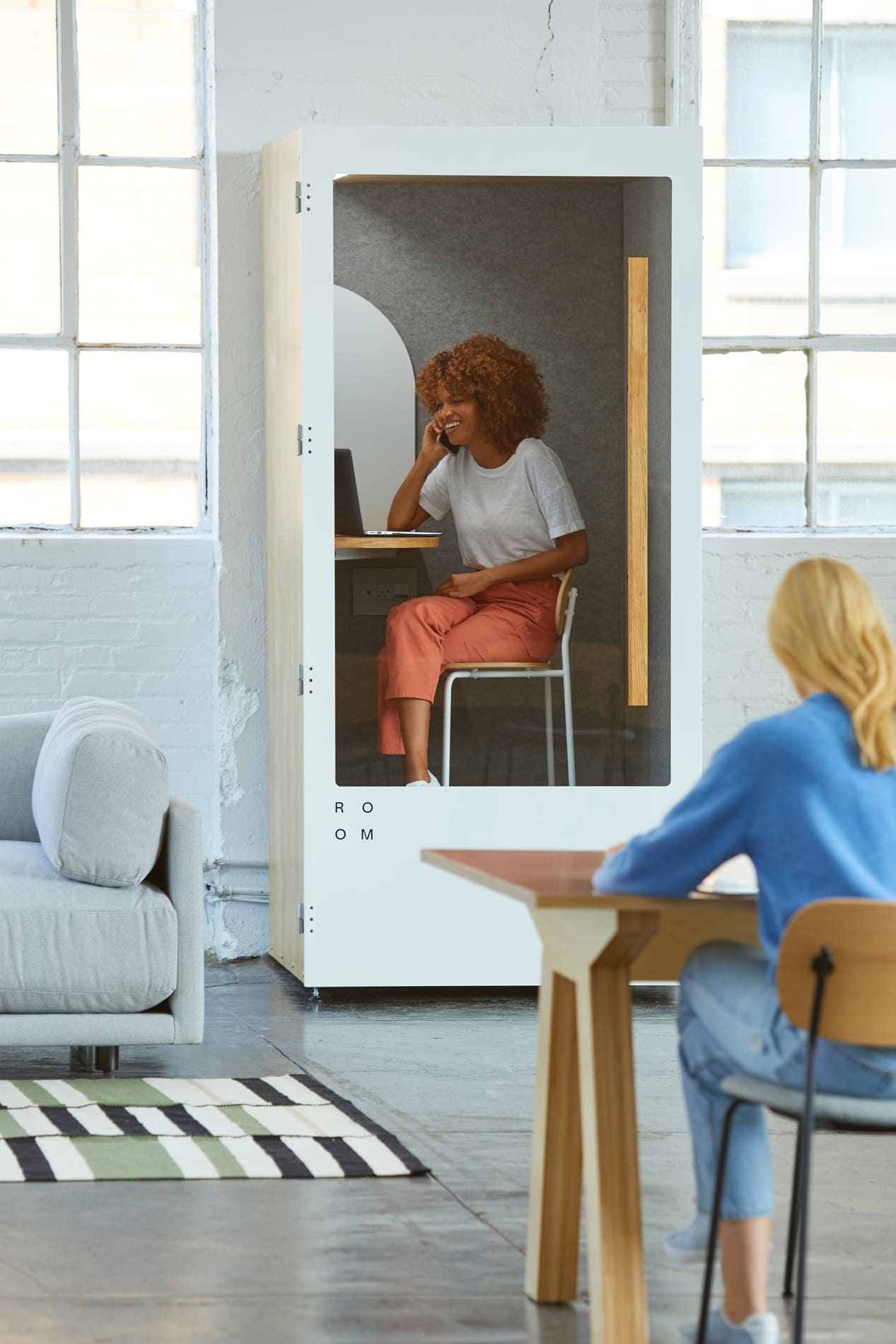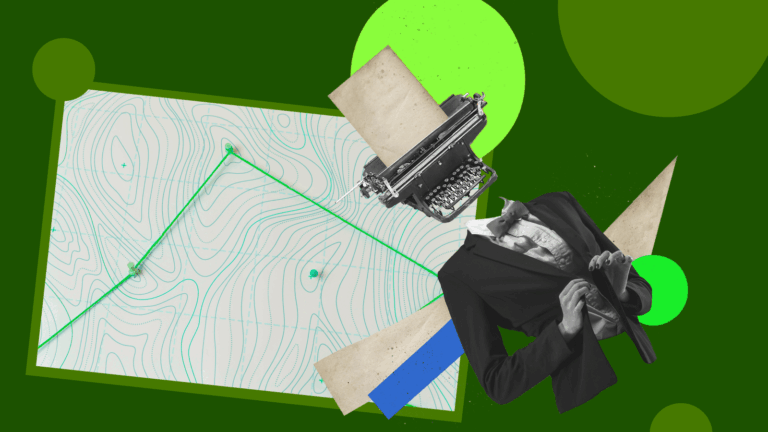
Different types of interviews for technical recruitment

As a professional technical recruiter, there are many different types of interviews for you to consider. Some are more useful at particular stages of the assessment process, some are more appropriate for testing particular skills. This article will explain a number of different types of interviews and point out their various advantages and disadvantages.
Types of interviews you can use for technical recruitment
Read on to find out more about,
- Case interviews
- Coding interviews
- Competency-based or behavioral interviews
- Final interviews
- Panel interviews
- Phone interviews
- Second interviews
- STAR format interviews
- Structured interviews
- Video interviews
- Working interviews
Case interviews
In many professional service firms, the case study interview is a key element in selecting employees. Originally, it was an approach primarily aimed at assessing candidates for partner-track roles and associate-level employees. However, this has been expanded to analyst-level employees who provide internal support to senior management, researching, and vetting strategic opportunities.
The case study interview typically involves you presenting a candidate with an authentic business scenario similar to one that your firm regularly handles with its clients. You then ask the candidate to study the problem, perform an analysis, and provide advice on how to handle the scenario. Depending on the industry that the consultancy serves, you may ask the candidate to demonstrate how that advice might be implemented, and show specialized technical proficiency.
Advantages
- In the case interview, coming up with the “correct” answer isn’t as important as the process the candidate uses to get there. Candidates must demonstrate their ability to analyze a situation or business dilemma.
Disadvantages
- Clearly, this type of interview is more suitable for experienced candidates.
- A case study interview panel must consist of interviewers who are also suitably experienced, not only in their professional capacity but also in carrying out these types of interviews.
Coding interview
A coding interview is a general term for any interview in which you assess a candidate’s coding skills. There is a large number of types of interview methods you can use, ranging from whiteboard interviews, through to online live coding interviews, sometimes in the form of pair-programming interviews.
Unlike other types of interviews, whiteboard interviews, candidates are asked to work out a solution on the spot by writing code on a whiteboard, while the interviewing team observes and peppers the candidate with questions. As a tech recruiter, it is important to remember that whiteboard interviews are essentially tech quizzes which tell you very little about real coding skills.
If you’d like to read more about online coding interviews, please see our Online coding interview and how to CodePair remotely.
 Image source: Fabian Grohs on Unsplash
Image source: Fabian Grohs on Unsplash
Advantages
Online coding interviews:
- Can be taken remotely
- Address a real business problem
- Are carried out under real-world conditions, and
- Can be customized to the needs of the job position
Disadvantages
- Online coding interviews take a bit of setting up, but DevSkiller provides on-line materials, training, and certification to help you with this.
Competency-based interview or behavioral interview
With this type of interview, when it comes to behavioral interview questions, the idea is that past performance in comparable circumstances is a good predictor of future performance. Therefore, instead of asking hypothetical questions like other types of interviews, such as: “How would you deal with such and such a situation ….”, you would ask more specific, focused questions in order to elicit concrete examples of particular forms of behavior in the past. For example: “Describe a time when you had to …” or “Give me an example of a time when you didn’t meet a goal, and how you handled this.”
Competency-based interviews (also called structured or behavioral interviews) are not random, but systematic, with each question targeting a specific skill or competency. You would then dig further into the examples by asking for more specific explanations relating to the candidate’s behavior or skills.
Advantages
- Candidates know that they can expect competency-based interviews, which means that you’ll probably see their best side.
- Assessing the past behavior of the candidate makes it easier for you to predict how candidates might behave in the future.
- You’ll easily be able to identify a candidate who tries to bluff, while one who admits they may not have a certain skill, but are willing to learn, is showing a mature and honest outlook.
Disadvantages
- The biggest issue with competency-based interviews is the quality of answers you often receive. Candidates prepare themselves in advance to answer certain, well-known questions. So, if you stick to the same style of questions, you’re quite likely to get the same answers.
Final interview
Most hiring decisions require a few stages: sourcing, screening, two or more interview rounds and, in some cases, skills-based assessments. The idea of a final interview is to invite a small number of qualified candidates to meet one or more senior managers. This is done in order to identify which candidate out of the final two or three is the best fit for your organization, but before you make any job offer.
To reach an objective decision, it’s worth considering getting together a group of interviewers. These should include the hiring manager, the team leader, and the CEO if they were not involved in previous rounds. When you’re inviting candidates, inform them in advance that this is the final round, and let them know whom they’ll meet.
Final interviews help you to identify long-term partners, people who understand and share your company values. It’s a chance to find out which potential hires will provide fresh ideas, be great team players, and contribute to company success.
Panel interview
Panel interviews are the same as individual, face-to-face interviews, but unlike other types of interviews, always have two or more interviewers in the room. The main advantage of panel interviewing is that it reduces the chances of personal bias creeping into the assessment process. Each interviewer will pick up on different characteristics, strengths, and weaknesses, and putting all this information together is likely to lead to a fairer judgment.
One person should lead the interview, asking all of the main questions, while the other interviewers follow-up with more in-depth inquiries into each topic. This allows the interview to flow more easily and should prevent overlaps and interruption.
 Image Source: Tim Gouw on Unsplash
Image Source: Tim Gouw on Unsplash
Advantages
- Reduces the risk of personal bias.
- Gives the chance to compare different opinions.
- Gives some interviewers the chance to make notes (while others talk).
- All relevant stakeholders take part in the process at the same time.
- The candidate gets a chance to meet all relevant stakeholders.
Disadvantages
- The interviewing process must be well managed.
- Some interviewers may feel that they don’t need to take an active part in the process.
- Meeting all stake-holders at the same time could feel overwhelming for the candidate.
- There’s a risk that interviewers may not reach a consensus.
Phone interview
A CV only gives part of the story – hearing the candidate’s tone of voice and assessing their direct, natural answers will give you more insight into their personality. At the same time, telephone interviews are highly valuable, because they speed up the interview process and minimize time-wasting. This allows you to identify your weaker candidates earlier on, which will benefit both of you. The key to a successful phone interview is to keep it short and simple. Use direct questions which help you to get as much of the need-to-know information as quickly as possible.
Advantages
Phone interviews are:
- Quick
- Cheap
- Allow you to assess communications
- Allow you to reach long-distance candidates, and
- Allow you to cull weak candidates pre-interview
Disadvantages
- You won’t be able to assess a candidate’s body language during a phone interview.
- Portraying your business as a fun and exciting place to work will be hard when candidates can’t see you in person.
- You may have to schedule telephone interviews outside of working hours, unlike other types of interviews.
- You must make sure that you have enough time to conduct the interview (which may overrun).
- You must be located somewhere quiet so that you won’t get distracted.
Second interview
The second interview compares a given candidate to other candidates. In particular, the second interview is used to either assess company fit in a soft skills interview or verify technical skills through a technical interview.
Depending on which of these purposes you want the second interview to serve, you’ll choose different types of questions. For example, in a soft skills interview, you might ask: “What are your career goals?” whereas technical interviews aim to evaluate problem-solving skills, discuss tasks specific to your company, talk/code together to assess team and company fit. These types of interviews are usually conducted by members of your developer team, tech leads, or the CTO.
If you’d like to read more about second interviews, please see the DevSkiller article on 12 powerful second interview questions to ask your candidates.
STAR format interview
The STAR method is a technique for asking and answering behavioral interview questions in a structured manner. The STAR method helps you to find out in a simple yet powerful way how a candidate handled specific work situations and challenges. For each relevant skill or ability, you would follow the following format (and the candidate responds accordingly):
- Situation: You ask the candidate to present a recent challenging situation in which they found themselves.
- Task: You ask: “What were you required to achieve?”
You will be looking to see how the candidate describes their aim in the given situation.
Sometimes, a candidate uses the term “Target” rather than the term “Task”. You might conclude that candidates who describe an aim as a “target” they set for themselves instead of an externally imposed “task” demonstrates a higher level of intrinsic motivation. - Action: You ask: “What did you do?”
You will be looking for information on what the candidate did, why they did it, and what the alternatives were. - Results: You ask: “What was the outcome of your actions?” “What did you achieve through your actions and did you meet your objectives?” “What did you learn from this experience, and have you used this learning since then?”
Advantages
- This form of interview gives you an excellent opportunity to judge a candidate’s communication skills.
Disadvantages
- On the other hand, candidates prepare themselves to answer questions in this format – as a result, the fact that candidates can “talk the talk”, doesn’t, in fact, prove that they can “walk the walk”.
Structured interview
A structured interview, sometimes called a standardized interview, is similar to the typical form of interview which is carried out in a market survey. For example, “… on a fixed scale of 1 (very unhappy) to 5 (very happy), how happy are you?”. In a structured interview, you would ask a standard set of questions in a standardized order within the time allotted. You will not cross-question candidates on any of their answers, and you may give them a limited amount of time to answer questions. The aim is for you to give all interviewees exactly the same interview stimulus. Questions are usually very specific and very often offer the interviewee a fixed range of answers (this type of question is generally called closed, closed-ended, pre-coded, or fixed choice).
Advantages
- These interviews are fairly quick, so a large number of candidates can be interviewed in a short period of time, and then the answers can be analyzed quickly and easily.
Disadvantages
- The questioning process is inherently inflexible.
- The quantitative nature of the answers means that these interviews do not provide sufficient information for any jobs which require that candidates have the appropriate cultural fit.
 Image source: ROOM on Unsplash
Image source: ROOM on Unsplash
Video interview
Video interviews (on Skype, Google Hangouts, FaceTime) are a great alternative to telephone interviews. The fact that you can actually see each other adds a certain level of professionalism to the ‘call’.
Advantages
As with phone interviews, video interviews allow to:
- Assess communications.
- Reach long-distance candidates.
- In addition, video interviews allow you to assess (up to a point) a candidate’s body language during the interview. For example, you’ll be able to tell if a candidate is really focused (or just reading from notes).
Disadvantages
- For a video interview, you’ll need to have a faster, more reliable internet connection than the connection you need for a phone interview.
- You will probably need to schedule a video interview outside of working hours.
- It will still be difficult to read most elements of the candidate’s body language.
- It will still be difficult to build significant rapport via video.
Working interview
A working interview is a time for candidates to show an employer what they can really do in the workplace. Often, that involves having candidates perform the duties they would during their day-to-day work. If that’s not exactly possible – for example, if extensive training would be required – candidates may be asked to otherwise demonstrate their expertise in a situation that’s not “live.” A working interview can last anywhere from a few hours to several days.
Advantages
- Clearly, this is real, trial employment which gives a good insight into many aspects of a candidate’s personality, skills, and knowledge.
Disadvantages
- In the eyes of the law, the working interview is actually a period of employment, not unpaid training before hiring. As such, the employer must pay candidates at least minimum wage for their time.
- As a result, both the employer and candidate must spend some time filling out the relevant temporary employment paperwork.
Image credit: Austin Distel on Unsplash




